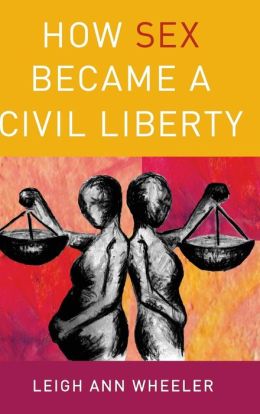Multiple paradoxes lie at the heart of Leigh Ann Wheeler’s How Sex Became a Civil Liberty: a constitutional doctrine of sexual privacy exists alongside a public culture saturated by sex; women and sexual minorities enjoy unprecedented rights and freedoms while pornography proliferates in plain sight and civil libertarian principles underwrite opposition to rape shield laws and hate speech codes. Meanwhile, liberals and conservatives alike speak in a common civil liberties idiom that embraces the individual’s right to access sexual material once considered an obvious and proper target of state regulation. As Wheeler’s engaging history of how the American Civil Liberties Union (ACLU) helped make sex a civil liberty reveals, commitments to sexual freedom and consumer rights grew out of the changing political and cultural milieu from which the organization emerged and drew its leaders.Read on here.
Thursday, April 3, 2014
Mayeri on Wheeler, "How Sex Became a Civil Liberty"
Over at JOTWELL, Serena Mayeri (University of Pennsylvania) has posted an appreciative review of How Sex Became a Civil Liberty (2012), by Leigh Ann Wheeler (Binghamton University). (We've mentioned the book previously, here.) Here's the first paragraph of Mayeri's review:
